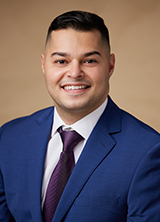When can a worker reclassify a Washington industrial injury claim to an occupational disease claim?
 In Washington, workers’ compensation claims are bifurcated and categorized as an industrial injury or an occupational disease. An “industrial injury” involves a sudden and tangible happening of traumatic nature, producing an immediate or prompt result, and such physical conditions result there from. See RCW 51.08.100. An “occupational disease” involves a disease or condition that arises naturally and proximately out of the distinct conditions of employment. See RCW 51.08.140; Dennis v. Department of Labor & Indus., 109 Wash.2d 467, 745 P.2d 1295 (1987).
In Washington, workers’ compensation claims are bifurcated and categorized as an industrial injury or an occupational disease. An “industrial injury” involves a sudden and tangible happening of traumatic nature, producing an immediate or prompt result, and such physical conditions result there from. See RCW 51.08.100. An “occupational disease” involves a disease or condition that arises naturally and proximately out of the distinct conditions of employment. See RCW 51.08.140; Dennis v. Department of Labor & Indus., 109 Wash.2d 467, 745 P.2d 1295 (1987).
From a claim administration standpoint, the distinction between an industrial injury and occupational disease is important. For example, injured workers only have one year to file an industrial injury claim whereas workers have two years to file an occupational disease claim. RCW 51.28.050; RCW 51.28055. Additionally, doctors need to understand the scope of a claim to determine whether a condition is related to a specific event or the distinctive conditions of employment. Categorizing a claim as an industrial injury or occupational disease is not always black and white, especially if the worker is unsure how his or her symptoms began.
As claims progress and new information is unveiled, some claimants determine it is in their best interest to reclassify their industrial injury as an occupational disease to cover a broader scope of conditions. This begs the question whether a claim can be reclassified after the Department of Labor and Industries issued its allowance order; In Re Pedro Ceja, BIIA Dec., 20 20398 (2022) is instructive on this issue. In that case, the claimant injured his right knee after slipping while cleaning. Claimant sought medical treatment and the Department issued an order allowing the claim as an industrial injury. Claimant later argued the condition diagnosed as right knee osteoarthritis was related to the claim. The Department disagreed and eventually closed the claim.
Claimant appealed the Department orders segregating his right knee osteoarthritis and closing the claim to the Board of Industrial Insurance Appeals. At trial, claimant failed to present any expert testimony that his injury caused or aggravated his arthritis. Rather, his medical experts testified that the right knee osteoarthritis arose from the distinctive conditions of his employment. The Industrial Appeals Judge affirmed both Department orders. The Judge reasoned the issue was limited to whether the arthritis was specifically related to the industrial injury and not his work generally. In his Petition for Review, claimant argued his claim should be allowed for as an occupational disease due to his 25 years of agricultural plant sanitation work. The Board responded by stating claimant previously had an opportunity to challenge the classification of his claim when the Department issued the allowance order back in 2018. Since no party protested the allowance order and the decision was final and binding, claimant was unable to reclassify his claim from an industrial injury to an occupational disease.
In Re Pedro Ceja clarifies that claimants cannot reclassify an industrial injury claim to an occupational disease in order to request acceptance of additional conditions caused by employment conditions. However, this case further suggests that claimants cannot reclassify occupational disease claims as an industrial injury either if claim allowance is final and binding. I recommend working with claimants early on in the claim administration process to obtain all facts necessary to appropriately determine whether a claim was properly classified as an industrial injury or an occupational disease. I also recommend working with claimant’s providers to discuss the onset of claimant’s symptoms which will help determine the appropriate claim classification.
If you have any questions or concerns regarding the appropriate classification of a workers’ compensation claim or need to challenge a reclassified claim, please feel free to contact me at (503) 412-3105 or .
Posted by Omeed Ghaffari

